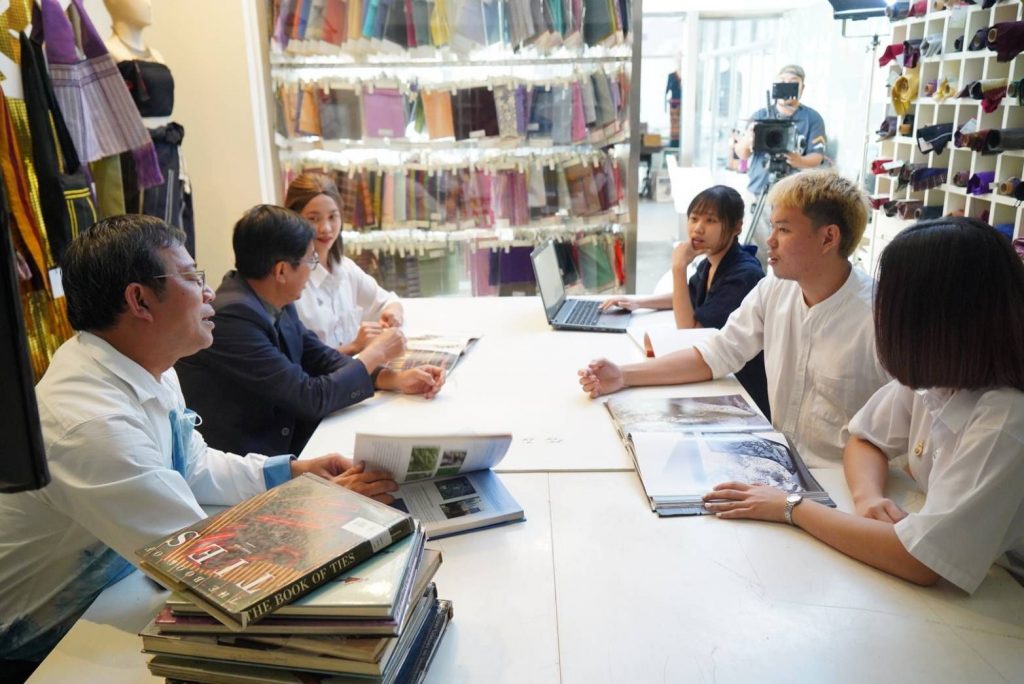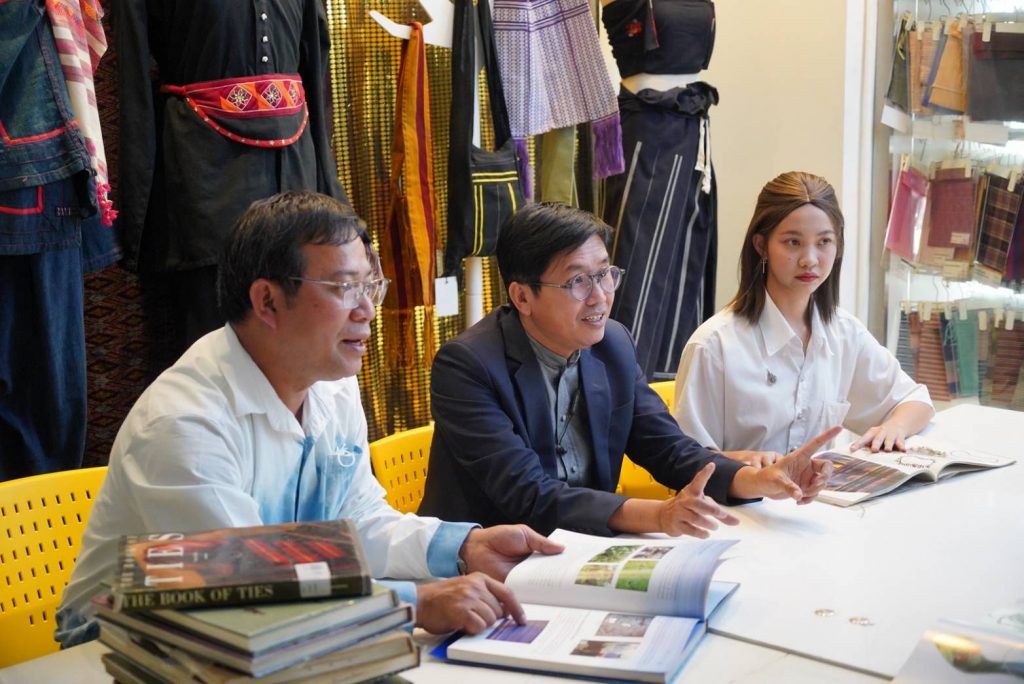Associate Professor Dr. Rattanapon Mongkolratnathit, responsible for the Master’s program in Textile Technology and Fashion Design, Faculty of Textile Industries and Fashion Design, Rajamangala University of Technology Phra Nakhon, stated that Thailand’s educational institutions produce skilled individuals in textiles and a significant number of proficient designers. They are capable of establishing their brands and garnering recognition both locally and internationally. However, Thailand is experiencing a decline in the workforce entering the industrial sector, compounded by high labor costs. Therefore, to sustainably survive, the Thai government must strive to promote and maintain these strengths while creating more opportunities for the textile industry. As Thailand possesses a comprehensive textile industry, a strategic location, and convenient logistics, it could potentially serve as ASEAN’s central hub for product distribution. Moreover, to maintain the industry’s sustainability, businesses must innovate and tailor their products to meet consumer demands. Educational institutions, as primary entities, should focus on producing high-quality personnel, particularly researchers and analysts specialized in textile technology and fashion design. These individuals should possess international standard expertise, utilize digital technology to drive operations, and continually expand their knowledge, embracing new innovations. This approach would significantly contribute to the advancement of the industry, the economy, and society, particularly in technological production transformations.


